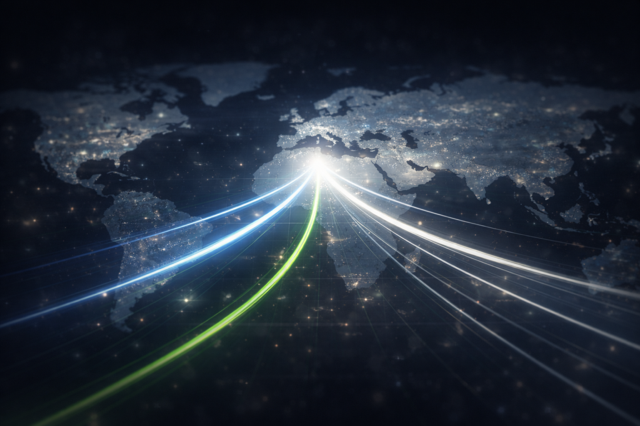JULY 2025 INSIGHTS
- Wickett Advisory - Xenia Wickett
- Aug 5, 2025
- 4 min read
Updated: Aug 6, 2025

After a demanding June, July gave me space to reflect, reset, and work on some of the longer-term institutional goals that support the business I want to build. I’m reminded of Bayo Akomolafe’s line: “The times are urgent. Let us slow down.”
In the quiet, I found clarity—on patterns in the world, in people, and in myself. Here’s what stood out this month:
What I've Learned About the Context
The Global South is key: The future global order is likely to be shaped not by the ‘Global East’ or ‘Global West’—but by the Global South. Yet how often are they even in the room?
AI and the business model gap: At the root of the search/AI challenge lies a structural issue—there is no business model for privacy. And that absence shapes everything.
AI in elections: In 2024’s compressed election calendar, AI tools were used in over 80% of contests worldwide. (International Panel on the Information Environment)
Making AI productivity real: The productivity gains from AI are potentially 2-3%. But for businesses to realise these gains they need to target specific areas of foci and rethink their organisational design from the ground up.
AI Adoption: 30% of SMEs and 40% of large firms in Europe have now integrated AI into their operations. (Eurostat)
The soft corruption of low expectations: Think about it…
China vs the US: power by domain: China dominates global manufacturing via its dominance of key supply chain nodes including rare earth minerals). The US retains financial hegemony via the dollar. (Global Capital Allocation Project, FT link)
Data centre energy consumption: The impact of AI infrastructure is rapidly escalating:
Indirect carbon emissions from Amazon, Microsoft, Meta and Alphabet rose 150% from 2020–2023.
Global data centre electricity demand is forecast to exceed Japan’s entire consumption by 2030.
The US Department of Energy warns of 100x higher risk of power outages if fossil fuel capacity keeps being retired. (The Observer, 21 July)
Industrial policy is back: In 2022, advanced economies introduced 1,000 industrial policy measures—up from just 100 in 2017. (The Economist, 19 July)
Russia’s new dependency: Exports to China now make up almost 6% of Russia’s entire economy—on par with Iran. (NY Times)
Growth, historically: Before 1700, the world economy grew by ~8% per century. Since then: ~350%. The inflection came with the Industrial Revolution. (The Economist, 24 July)
From VUCA to PLUTO: Beyond VUCA and BANI, a new acronym emerges: PLUTO – Polarised, Liquid, Unilateral, Tense and Omni-relational. A mouthful, but possibly on point.
What I've Learned About People
Slow down to notice: At The Oslo Center’s Words Matter! conference on disinformation, one idea kept surfacing: the need to slow down—before we click, post, react. A few days later this idea recurred in a slightly different form – we find the ‘flow state’ not in being busy but in listening.
Why business cultures get stuck: The Attraction–Selection–Attrition (ASA) cycle means organisations reinforce their cultural status quo. New hires are selected for ‘fit’. Those who don’t fit leave. Over time, sameness solidifies. It’s a useful reminder of how hard cultural change can be. (Benjamin Schneider)
Obedience and AI Agents: In the 1960s, Milgram coined the ‘agentic state’—when people obey authority so blindly they stop seeing themselves as responsible. The parallels with AI-as-agent are unsettling. If algorithms guide our decisions, at what point do we stop owning them?
The pause that empowers: “Between stimulus and response, there is a space. In that space is our power to choose our response. In our response lies our growth and our freedom.” – Viktor Frankl, Man’s Search for Meaning
What I've Learned About Myself
Flow comes from the body: My best thinking comes when I let my body lead. I’m spending way too much time in my head right now. I need to let go.
Thinking in curves: I’ve been thinking about the business too narrowly—assuming it must look like more of what I already do. But what if it doesn’t? What if I worked for someone else, or brought others in to work for me? Time to open my mind to different alternatives.
I’m neglecting the right metrics: I’ve said my success metrics a decade from now are more joy, time-richness, impact, and personal growth. But lately, I’ve not been investing enough in joy or growth. Those need attention.
A Quick Note on Transparency
In last month’s insights, I cited the statistic that “UK living standards are now lower than during the Global Financial Crisis.” A number of readers questioned the basis—and rightly so. I’m yet to find robust data to support it, so I’m withdrawing that statement unless and until I can. Thank you to those who challenged it.
If this sparked anything for you—an insight, a disagreement, or just a question—I’d love to hear it.
Best,
Xenia
For details on my Executive Coaching, read more here




Comments